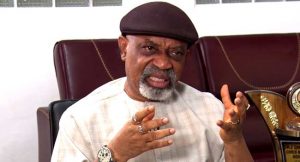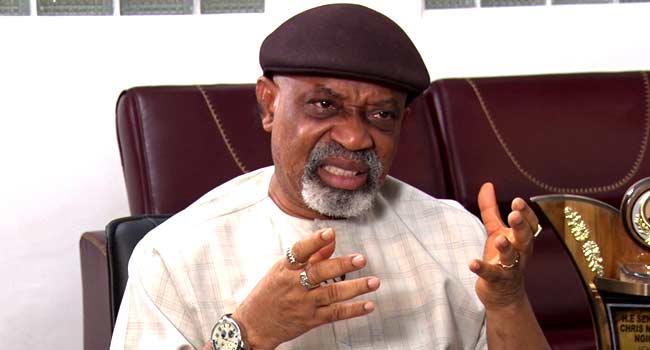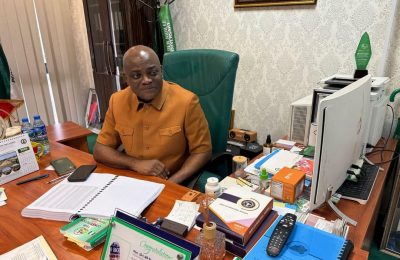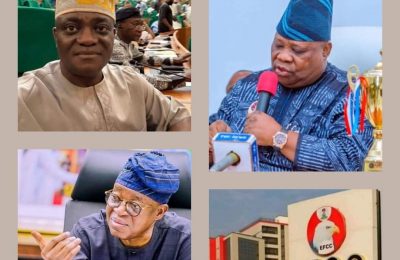

AS members of the Academic Staff Union of Universities, ASUU, failed to call off their 196-day-old strike, yesterday, indications have emerged that the Minister of Labour and Employment, Senator Chris Ngige, has written the Minister of Education, Mallam Adamu Adamu, to get the situation report on the negotiation between the leadership of the union and the ministry.
Also, there are insinuations that the Federal Government may drag ASUU to the National Industrial Court for refusing to suspend the strike, after some of its concerns had been addressed.
An impeccable source in the Ministry of Labour and Employment did not confirm whether there was any such move to take ASUU to the Industrial Court, but the source said the Minister of Labour, who is the Conciliator-in-Chief, might meet with the Minister of Education to know the status of the ongoing renegotiation talks.
“We gathered that the Minister (Ngige) has written to the Minister of Education to know the status of the ongoing negotiation with ASUU. The union is also expected to inform the ministry,” the source said.
Reminded that ASUU has extended the strike, the source said: “There must be a reason they decided to extend the strike, despite government’s offer to them. But I don’t know whether they have given their reasons for the action to the Minister of Education; the union is supposed to write to the ministry to state why they are extending the strike. They are also supposed to copy the Minister of Labour.”
Another source said since the Minister of Education was the direct employer of the university teachers and the one handling the negotiation matters, it was normal that he should write his counterpart in the Ministry of Labour on the situation report.
“You know the matter was sent to Mallam Adamu to renegotiate the 2009 agreement with ASUU, that is why the Professor Nimi Briggs Renegotiation Committee was set up. If there is any breakdown, the Minister of Education should write a report on the status of the negotiation to the Minister of Labour. ASUU is also expected to send a report to the Labour Minister,” he said.
Parents of students in public universities and their wards were, yesterday, left disappointed when members of ASUU failed to call off their industrial action, after their National Executive Council, NEC, meeting in Abuja.
Instead of the anticipated easing of tension in the ivory towers, the union rather opted to roll over the strike that entered 196 days, yesterday. The industrial action started on February 14, this year.
Though the national leadership of the union is yet to come up with an official statement on the meeting, it was gathered that the meeting resolved to go on indefinite strike.
A member of the NEC told Vanguard that a formal position of the union in respect of the NEC meeting would be communicated through ASUU President, Prof. Emmanuel Osodeke, who he noted was the person with the responsibility to do so.
“We resolved in our just concluded NEC meeting that we should make the ongoing strike indefinite since the federal government has failed to show any commitment to addressing the grey areas that led us to this action.
”Our president, as usual, would communicate this, among other decisions, to the public through the media,” he said, refusing to speak further.
NANS’ reaction
Commenting on the development, the National President of the National Association of Nigerian Students, NANS, Sunday Asefon, described the action of the union as political, warning that the lecturers should no longer claim they were fighting for the welfare of students.
“Yes, strike is a weapon by unions to agitate for their demands to be met. But in this case, ASUU has deviated from their original intention. They are now pursuing their own personal interests.
”The leadership of ASUU is selfish. We won’t support them again, we were supporting them before because the issue of Revitalisation Fund for the universities was involved. Now, they are concerned about their salaries and welfare.
“We can say the Federal Government has not done well, but that is not to say that the union should be inconsiderate too. Most of the things they are now complaining about, the UTAS, salary increment, Earned Academic Allowances, who are they for?
”They are for the lecturers now. We are not saying the government should not pay them, but they should know that students were at home for nine months in 2020 and now for over six months. We may have to call out Nigerian students to protest against this,” he said.
Parents’ angle
The National President of the National Parent Teacher Association of Nigeria, NAPTAN, Haruna Danjuma, expressed disappointment about the turn of events.
“We thought the issues would be amicably resolved and the strike suspended, but that was not the case. It is a big blow. We need divine intervention in this matter. The government has more than one thousand and one ways to resolve this matter.
”We implore the President to thread softly on the issue of “No work, no pay,” as that is the major grey area now.
“We appeal that the Nigeria Labour Congress, NLC, the FG and ASUU hold a meeting to resolve this. The union and the government should consider the plight of our children. There is no need to escalate the situation,” he said.
We’ve solved 80% of ASUU’s demands —FG
Reacting to the development, the FG said it had addressed 80 per cent of the union’s demands, noting that the extension of the strike was unreasonable.
The Federal Ministry of Education, speaking through its Director of Press and Public Relations, Mr Bem Goong, said:”If you bring some demands and almost 80% have been attended to, there is no need to drag the strike anymore. It is unreasonable for the strike to be lingering since the government has worked towards fulfilling most of the demands.”
Goong, who said the federal government had deployed all measures to end the strike, added: “As regards the next steps, the government has already inaugurated a committee to harmonize the Integrated Payroll and Personnel Information System, IPPIS, the University Transparency and Accountability Solution, UTAS and the University Peculiar Personnel and Payroll System,U3PS. This will ensure that the government will pay with only one payment platform that will harmonize all the technical peculiarities.”
Recall that the Minister of Education, Malam Adamu, had last week, claimed that government had resolved most of the demands of ASUU.
Among the demands addressed, according to Adamu, was the release of N50 billion for the payment of earned allowances for academic and non-academic staff of universities.
State varsities’ ASUU membership voluntary—Pro-chancellors
Meanwhile, the Committee of Pro-Chancellors of state universities yesterday said state universities could not be coerced to implementing the agreement reached between the Federal Government and lecturers in federal universities under the aegis of the Academic Staff Union of Universities.
The committee also called for liberalization of industrial unions in the university system by registering more unions.
The pro-chancellors also stated that there was a need for the democratisation of membership of unions in the universities, noting that state varsities’ membership was voluntary.
State universities have come under fire over their failure to pull out of the ongoing strike declared by the national body of ASUU.
In a statement yesterday by the chairman, Yusuf Ali, SAN, the pro-chancellors said: “ The Committee of Pro-Chancellors of State-owned Universities read with alarm and disbelief a statement made by the President of the ASUU, Prof. Emmanuel Osodike on a television programme where he said that state universities are ‘irrelevant and quacks’.
“Our first reaction was to ignore this tendentious, ill-conceived and flagrant unconscionable statement by the President of ASUU, but on reflection, it was thought necessary to do a rejoinder to this rather unfortunate statement, having regard to the position of the President of ASUU in the scheme of things in our university system in Nigeria.
“Though COPSUN will not want to go into any diatribe with the president of ASUU, the committee wishes to state as follows to put records straight:
“That the Pro-Chancellors of our state universities and, indeed, members of the councils are distinguished and accomplished eminent persons who served and still serve this nation in many capacities.” Continue Reading







